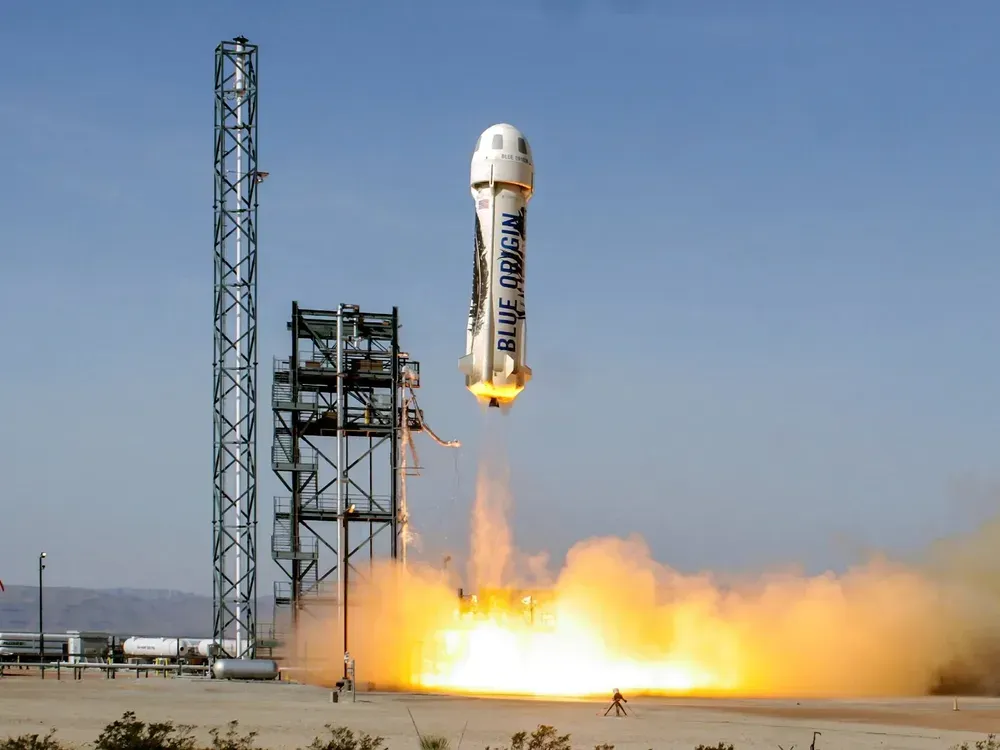
🌍 "Data from space makes the world a better place – every day"
Rescue whales from colliding with cargo ships, alerting on a flood that is on its way, or monitoring emissions. Every day, data collected from space make a difference on Earth, says Amazon Web Services Clint Crosier.
Share this story!
By using data collected from space, we create a better world here on Earth. It's one of Amazon's mottos. And also Clint Crosiers. Crosier, a former Major General of the US Air Force and head of the Pentagon's space operations, now heads Amazon Web Services business area for aerospace and satellite solutions.
When Crosier got the assignment for AWS just over a year ago, it was with the aim of marrying the space industry with cloud technology. Each for themselves vital industries, but together truly potent.
During the ongoing AWS re:Invent conference, the benefits of space exploration are brought to life.
The cloud has enabled a number of different innovations in a short time in the space sector. Many of which we directly benefit from on Earth.
"Space data is used in everyday life, often without us thinking about it," says Crosier and exemplifies with the GPS technology that was initially developed for space but has a wide range of uses today.
Digital Earth Africa (DEA) is another example of how data collected in the digital cloud makes a difference to life on Earth. Satellite monitoring and warning systems inform countries affected by various climate-related events. Crosier describes how this technology can flag up floods and storms in a timely manner, enabling residents in the area to evacuate.
"The forecasts that are produced are 50 percent faster than the traditional ones."
DEA also provides the opportunity to work more proactively with, for example, agriculture. It can warn when an area is at risk of drought or inform when the harvest is ripe.
In Europe, there are similar monitoring programs provided by Satellite VU and HSAT, among others, with a focus on, among other things, greenhouse gases and emissions.
"With the help of artificial intelligence, we can monitor the Earth's climate from space" - Clint Crosier
"With the help of artificial intelligence, we can monitor the Earth's climate from space," says Clint Crosier.
Game management is also served by this technological development, the AWS profile continues and highlights the collaboration with Gatehouse:
"For example, there is a monitoring of protected whales in California via satellite that allows ships to be warned, so they do not enter areas where the whales are."

Cloud technology is in itself an environmentally friendly technology. What does this mean for companies that get connected?
"Companies that move to the cloud not only save money. They are also reducing their climate footprint," says Clint Crosier and continues:
"Some lower their climate footprint by as much as 70 percent."
The cloud also enables "digital twins," which in practice means that companies can test their ideas without having to pay for materials to build a physical object. Creating products and environments in the cloud when you get access to 10,000 servers that work for you at the same time, of course, gives a certain edge.
By using the cloud's simulation capabilities, the space industry gets an extra boost. Crosier has previously told Space News about the company Boom Supersonic, which built a craft based on AWS clouds using high-performance digital simulation models. In just three years, they were able to complete the equivalent of 6,000 years of work.
These are substantial productivity gains. What does this mean for the space industry in general?
As more and more people connect to the cloud and more decisions end up in technology rather than human hands, there are security concerns.
"It has been proven before that it is more reliable with automated decision-making when taking-off and landing with an airplane. We are convinced that the decision-making required to be done in seconds is something that man himself cannot do."
We will be able to see more and more elements of private investment in space going forward. It is companies and entrepreneurs who are exploring space in new ways, rather than rich nations competing for space, Crosier says.
At the same time, more countries are now trying to find their place in the emerging space market. AWS has recently signed a cooperation agreement with the Greek government to assist in developing the country's space presence.

What more countries are lined up – and is there any restriction for which countries may be relevant as customers?
"There are no restrictions in which countries we can talk to," says Clint Crosier and points out that AWS, as recently as just a few days ago, agreed on a similar arrangement as the one with Greece, with Singapore.
"We are open to conversations with everyone."
When he looks ahead, he sees the continued commercialization of space.
It has also quite recently been shown to be an advantage transporting data in space compared to on Earth. Light travels much faster in the vacuum of space than in fiber cables. This is an area that may develop further in the future, says Crosier. He also sees an emerging market in manufacturing in space, instead of sending it from Earth.
"These are exciting times to work in space," Crosier concludes.
👆️ This article is produced by Warp News in partnership with Amazon Web Services.
❤️ Our partners enable Warp News to spread fact-based optimistic news to thousands of new readers. In return, they have the opportunity to spread their message and market themselves to you as a reader in the form of partner content – like this article.
❓ Want to know more? Send an email.
By becoming a premium supporter, you help in the creation and sharing of fact-based optimistic news all over the world.


